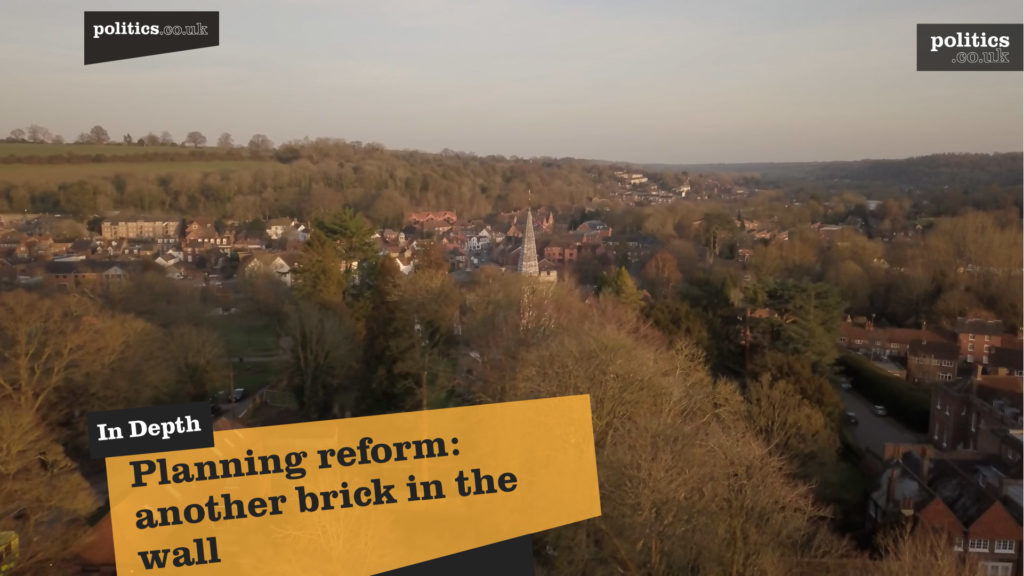It has become something of a joke that planning permission in the UK takes forever to attain.
The government is trying to address this, as well as issues around affordable homes, with a drastic overhaul to planning rules.
“The current planning system in the UK is highly discretionary,” explained Anthony Breach, a senior analyst for Centre for Cities.
“There’s lots of case-by-case decision making to the extent that it’s possible to oppose the developments that complies with the local plan and it can still be rejected. It creates lots of uncertainty and it reduces the amount of housing that’s built and makes housing more expensive and less affordable.”


One of the biggest changes laid out in the ‘Planning for Future’ white paper, released last year, was to bring in a zoning system. This will effectively classify areas on whether they should be built on, splitting it into three categories: growth, renewal and protection.
“The zoning system as a whole is pretty welcome,” said Marie Chadwick, policy leader for supply at the National Housing Federation.
“It means that people are really going to understand what to expect in their local areas. I think there is a lot more to do, though, for the government to flesh out the detail behind it.”
There are concerns, however, that in streamlining the process local people will have their say taken away.
“Communities time and again are really concerned that they’re not able to sufficiently influence where new housing development takes place in their area,” said Paul Miner, head of land use & planning, at countryside charity CPRE.
And there are further worries that the government’s plans have very little to say regarding affordable housing and net-zero targets.
“In recent years, there’s been a real problem of more and more housing that has been built being larger three and four bedroom homes for the middle and upper end of the market,” said Miner.
“It is interesting around there being less about decarbonisation and net-zero in the planning reforms,” Chadwick agreed.
“There does need to be a focus and there needs to be a recognition how expensive and how complicated this is going to be.”
But even if there are details yet to be released, Chadwick said these changes represented a positive step, one brick at a time.
“I think for us, our message would be Mr Gove come and talk to housing associations about what we can do to level up communities because we’re doing it already and I’m sure we can help push it through forward.”












